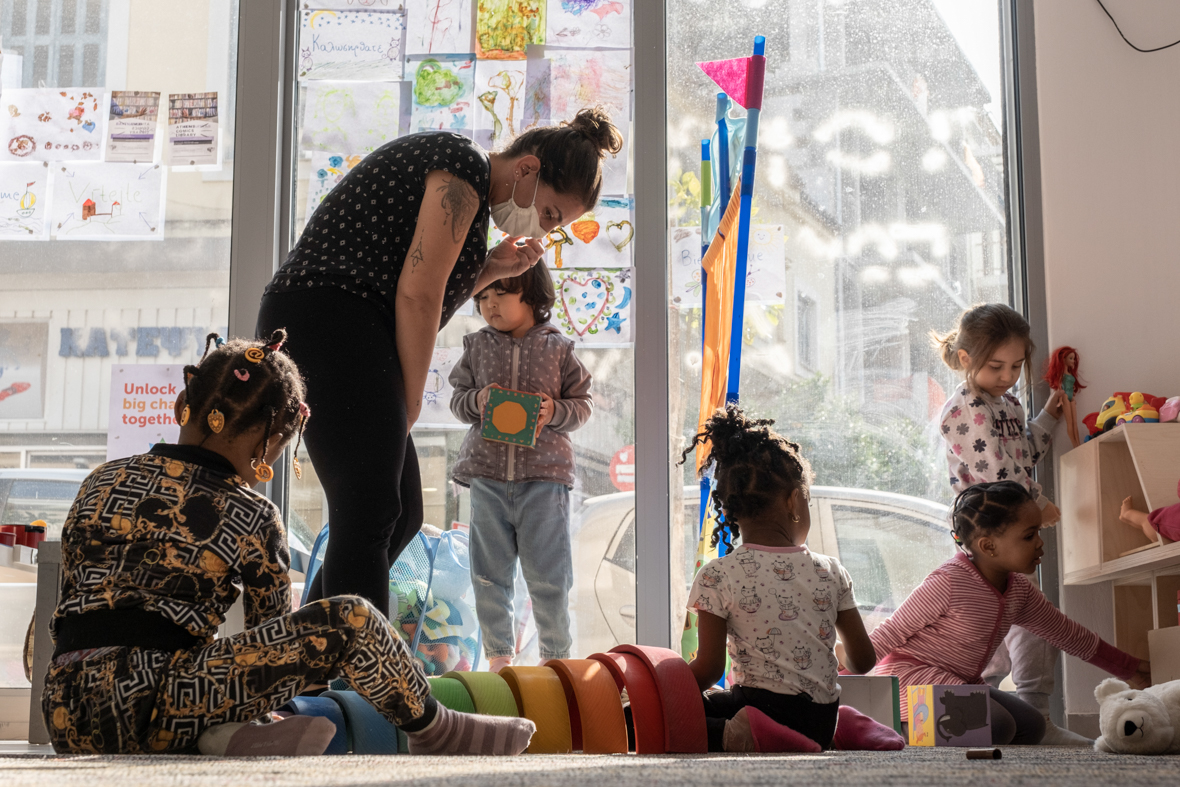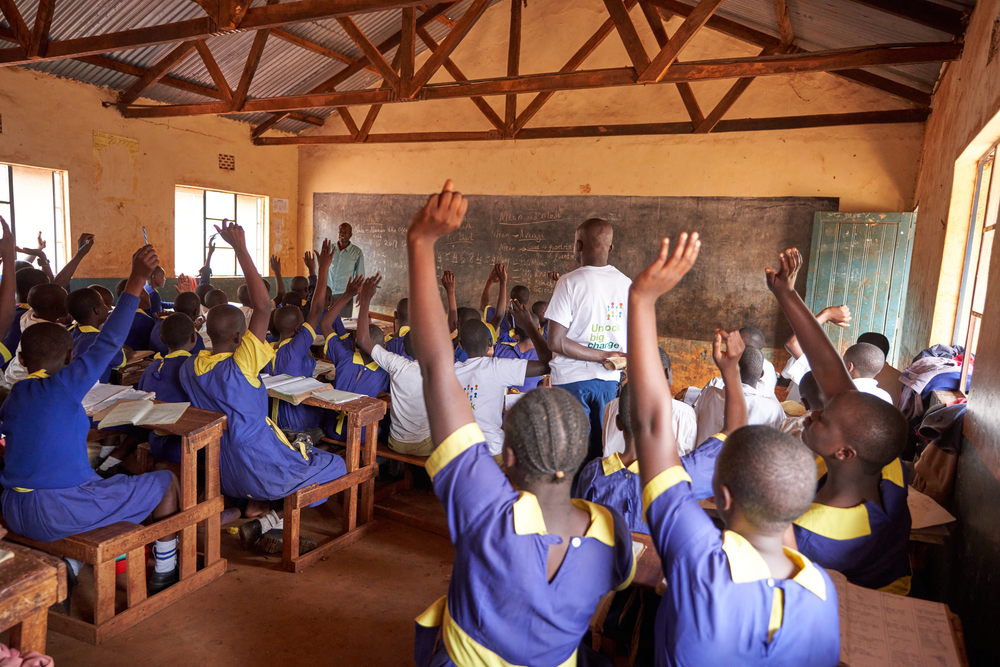
Right to education

This page is about the right to education and how it must be put into place for every child as a fundamental human right.
Jump to
- What is the right to education?
- How many people are denied the right to education?
- The global importance of the right to education
- What do we mean by a right to education?
- Who is responsible for enforcing the right to education?
- Protecting the right to education: effective strategies
- What must countries do to meet their obligations?
- Barriers to education
What is the right to education?
Education is a fundamental human right, yet millions of children worldwide are denied this opportunity.
Having an education helps people to access all of their other human rights. Education improves an individual’s chances in life and helps to tackle poverty.
How many people are denied the right to education?
According to the the most recent figures available from the UNESCO Institute for Statistics in July 2016, 263 million children and youth are out of school.
This includes 61 million children who should be in primary school, 60 million of lower secondary school age (ages 12 to 14) and 142 million who are aged between 15 and 17.
Girls and children from sub-Saharan Africa are most likely to be missing out on their education.
Armed conflict also means that children struggle to get an education – 22 million children of primary school age are affected by this. 75 million children and adolescents have had their education directly affected by conflict and emergencies.
The global importance of the right to education
Education reduces poverty, decreases social inequalities, empowers women and helps each individual reach their full potential.
It also brings significant economic returns for a country and helps societies to achieve lasting peace and sustainable development. Education is key to achieving all other human rights.
What do we mean by a right to education?
Every person is entitled to a quality education without discrimination, which means:
- A compulsory free primary school education for every child
- Secondary school (including technical training) must be available to everyone – states must work towards providing this for free
- Higher education must be equally accessible, with countries working towards the goal of making this free
- Fundamental education for those who missed out on primary school should be encouraged and available
It also means parents have the right to choose schools for their children and for individuals and organisations to set up schools that meet minimum standards.
Theirworld also believes that every child should have access to two years of free, quality pre-primary education.
Who is responsible for enforcing the right to education?
Governments must provide good quality education and make sure all children can access it, without discrimination.
This is an international legal obligation and governments can be held accountable for failing to provide education for all its citizens.
Education has been recorded as a basic human right in international law since 1948. It is included in many documents and treaties including:
- Universal Declaration of Human Rights (1948)
- Convention Against Discrimination in Education (1960)
- International Covenant on Economic, Social and Cultural Rights (1966)
- Convention on the Elimination of All Forms of Discrimination against Women (1979)
- African Charter on Human and People’s Rights (1986)
- Convention on the Rights of the Child (1989)
- World Declaration on Education for All: Meeting Basic Learning Needs (1990)
- The Dakar Framework for Action: Education for All (2000)
- Convention on the Rights of Persons with Disabilities (2006)
- UN General Assembly Resolution on the Right to Education in Emergency Situations (2010)
Protecting the right to education: effective strategies
Governments must guarantee that education in their country or state is:
- Available. There must be adequate materials, classrooms, trained teachers and so on – so that a quality education is available to every child.
- Accessible. Schools must be within reach, suitable for disabled children and fit for purpose. They must be affordable for all children. There must be no discrimination for gender, race, religion or any other reason.
- Acceptable. Education must be of a high quality and include relevant information that is appropriate. Children with disabilities have the right to the same quality of education.
- Adaptable. Schools and school systems must be suitable for the communities they serve.
Governments have to make sure all children can get the education they are entitled to by doing the following:
- Removing anything that prevents access to quality education, such as repealing laws that cause discrimination
- Preventing individuals or groups from stopping children from being educated
- Taking steps to make sure children can get a quality education – this could include building schools or training teachers
What must countries do to meet their obligations?
The international community knows that achieving the full extent of the right to education will take time and resources.
Governments must put plans in place to meet the minimum standard of free, compulsory primary education and then take steps to extend the right to education to every child.
The right to education without discrimination is part of the minimum standard and must be created immediately.
It’s very important that governments continue to work towards the full right to education and don’t allow plans to stall or be delayed.
As well as governments, other organisations and individuals play a part in making sure that all children can access quality education. These include intergovernmental agencies such as UNESCO, international financial institutions, businesses, civil societies and parents.
Barriers to education
Children across the world face challenges to accessing an education. These challenges range from gender inequality to poverty and even conflict. The impact on children and their education is vast. For example, according to UNICEF’s education in emergencies report, an estimated 35 million children around the world have been forcibly displaced and nearly half of school-age children are out of school.
Children’s identities can also be a barrier, as Theirworld’s own data shows that 1 in 4 LGBTQ+ children in the UK feel unsafe at school.
Finally, it is well documented that girls face a wide range of gender-based barriers to an education, which has a vast amount of social and economic consequences for both girls and their families. These barriers are often interlinked and work together to create challenges for children to access and education.
Next resource
